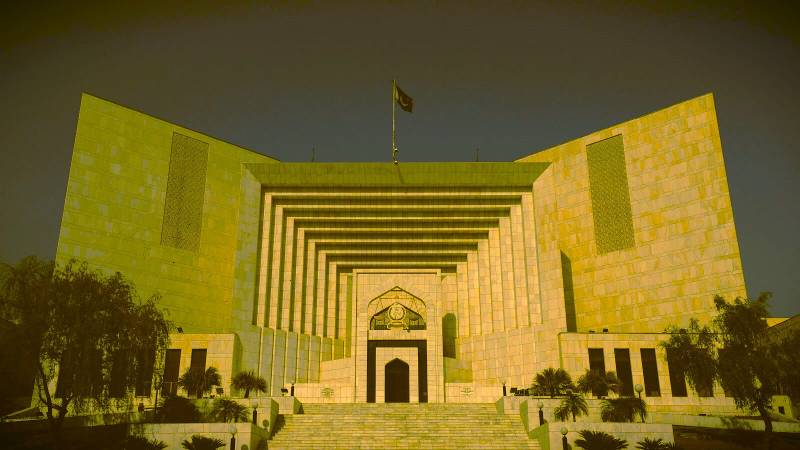
The Punjab government has challenged a decision of the Supreme Court issued last week which granted bail to a man charged with blasphemy.
The top court on Friday issued notices to the Attorney General and other respondents, including the person accused of blasphemy.
A three-judge bench headed by Chief Justice Qazi Faez Isa and comprising Justice Musarrat Hilali and Justice Irfan Saadat Khan heard the review petition filed by the Punjab government on Friday.
In the review petition, the Punjab government sought a modification in the judgment. It contended that Para nine of the judgment regarding Article 20 of the Constitution needs to be modified to the extent that the rights of the citizen as 'envisaged under the said article were not absolute and subject to the law, morality and public order.
The review petition further contended that the top court's findings, which led to the conclusion, were based on erroneous assumptions of material facts and misreading of the records. Without adverting to the very pertinent points of law raised and agitated before the court, the Punjab government argued that "those errors are manifest and apparent on the face of the record."
It went on to say that the respondent was an accused of the case registered in 2022 under Section 295-B & 298-C PPC and 9(1A) of the Holy Quran (Printing and Recording) Act 2011 in police station Chenab Nagar, District Chiniot, which has been got registered by a complainant identified as Muhammad Hassan Muavia.
The court adjourned the hearing for February 26.
In its five-page judgement last week, which only became the subject of criticism on social media this week — including a video message from Jamiat Ulema-e-Islam Fazl (JUI-F) chief Maulana Fazlur Rehman — CJP Isa decided to grant bail to the plaintiff who had been accused of publishing and distributing a proscribed book linked to the Ahmadiyya faith, Tafseer-e-Sagheer.
The court had ruled that the plaintiff was charged under Sections 298-C and 295-B of the Pakistan Penal Code (charges of blasphemy), but neither the FIR nor the challan filed by the police show the plaintiff had committed the offences for which he was charged under the cited sections.
Moreover, it noted that the plaintiff had been charged under sections of the law that came into effect in 2021, even though the actions for which he was being prosecuted allegedly occurred in 2019. With the court deleting multiple sections from the charge sheet, the relevant section under which the plaintiff should have been charged prescribed a maximum punishment of six months. Having already spent 13 months in detention, the court noted that the plaintiff had served more time than he would be punished if found guilty.
Following the judgement, Chief Justice Qazi Faez Isa has been subjected to a vicious campaign in recent days where he was accused of becoming partisan and siding with members of the Ahmadiyya Community by granting bail to a man in a 2022 case.

